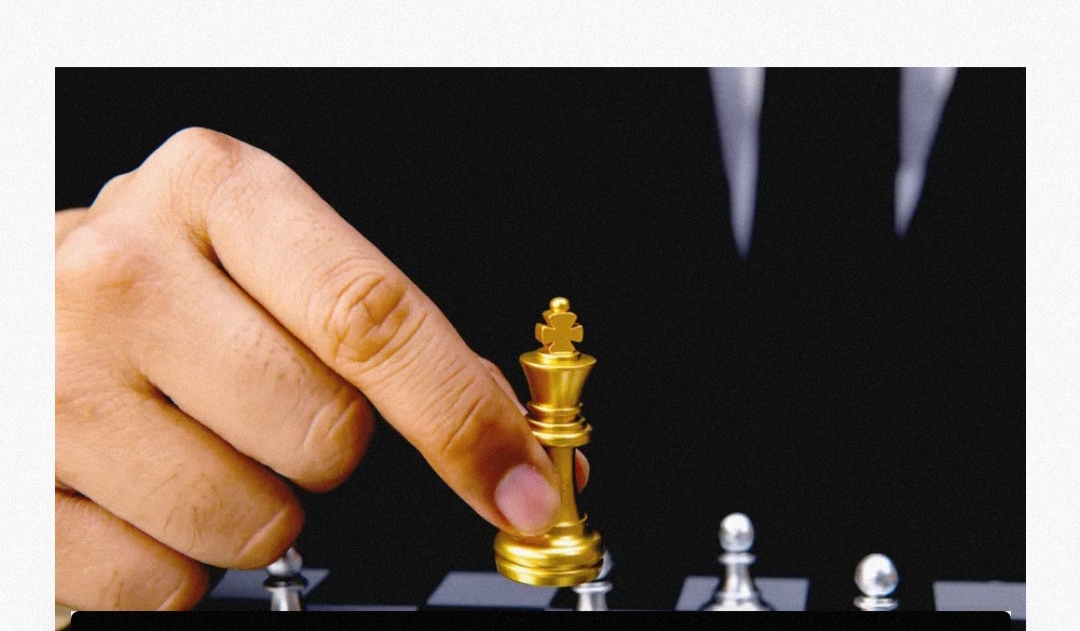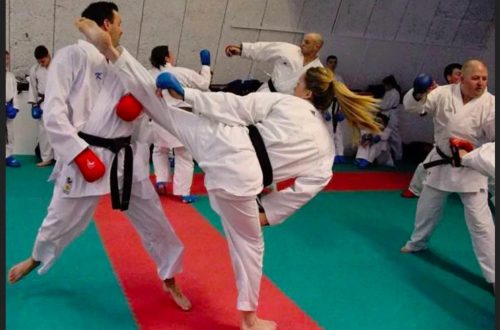
Puzzle hobbies that will make you an elite problem solver
Puzzle hobbies that will make you an elite problem solver
 Puzzles are a great way to keep your mind sharp and busy. Puzzles are also an easy and cheap way to pass the time for people who don’t have much time or money to spend on other hobbies. But puzzles can be much more than just games for your brain. They can also help you in other ways.
Puzzles are a great way to keep your mind sharp and busy. Puzzles are also an easy and cheap way to pass the time for people who don’t have much time or money to spend on other hobbies. But puzzles can be much more than just games for your brain. They can also help you in other ways.
Advantages of puzzles As a hobby, you solve?
When it comes to solving puzzles, there is no age limit. Anyone can do it. Many older people in the United States like to play these kinds of games because they are mentally stimulating, like crosswords and Sudoku, but also more difficult because there are fewer clues for each answer than in other activities. Puzzles have a lot of benefits, but the most important ones are that they help you remember things better, get more blood to your brain, and improve your mental health.
First, it’s important to know what puzzles are really about. They’re not just games that people play for fun. In the most general sense, solving puzzles means coming up with answers by using logic.
Puzzles come in many different shapes and sizes and they can improve your mental health. Some ask you to put things in a certain pattern as quickly as possible, while others want you to put things from one group inside another group (ex: fruits vs vegetables). A lot of puzzle questions also test your ability to see the world around you. This is because our brains use spatial awareness to help us get around.
Puzzles are good for you in several ways. They keep your brain active, improve your health, and are just fun. A puzzle can keep your brain active by giving you new problems to solve that make you think in a different way than you would in everyday life. It’s also important to remember that puzzles keep our brains feeling young, which is something we all want as we get older.
Puzzle hobbies that will make you an elite problem solver
Puzzles help people learn how to solve problems, which improves their overall cognitive function. This means that a person who solves puzzles every day will find it easier than a person who has never done it to do hard things like math problems or remember directions while driving down a road they have never been on before.
Puzzle hobbies that will make you an elite problem solver
Types of Common Puzzles
Cryptic puzzles
These are common puzzles that can be found in an escape room. The goal is to use clever and logical ways to find a phrase or a solution to a problem. Some of them are made to be solved by a single person, and they can be very easy or very hard.
Mechanical puzzles
This puzzle is best shown by the Rubik’s Cube. It is a type that you see a lot of these days. They come in different forms, but all of them can only be solved by trying and failing. To solve it, you will have to push, move, and connect pieces.
Logic
Logic puzzles have some kind of grid that needs to be filled in the right way. There are rules, and the answer is usually very different from any other. Some of these puzzles have a grid that is only partly filled, which makes it easier to find the answer.
Trivia
Trivia puzzles are based on facts about anything and everywhere in the world. They can be found in escape room puzzles, and if you don’t know much about the niche, they can be very hard.
Math
Math puzzles are, as you might expect, based on math. They use algorithms, and not just simple ones. The main goal is to test a student’s math skills. You can use a lot of different tricks and tips, but in general, you need to be good at math to solve one.
Riddles
The question in a riddle comes from a piece of text. You need the answer, which is hard and could be one of several things. All of this makes sense in some ways, but it doesn’t have to. Some puzzles are very hard to solve because they don’t follow any common sense. Knowing a lot about a certain niche can help you sometimes.
Pattern Guessing
“Find the next number in lines 1, 2, 8, 9…” is an example of this type of puzzle. They have been around for a long time and are very common. The goal is to figure out the answer without making a mistake by using the numbers or letters that are given.
Word Puzzle
Word puzzles are very common, and you’ve probably been doing them your whole life. A crossword is the best example of this. Think about the fact that some of these puzzles may be based on math.
Jigsaw Puzzle
A jigsaw puzzle is a picture that has been cut into many pieces that can be put back together to make the whole picture. To do this, you need to focus, be good at solving problems, and be patient. Doing jigsaw puzzles can help you get better at solving problems and staying focused. It can also keep your mind active because it uses both sides of your brain at once: the left side, which deals with numbers and symbols, and the right side, which loves pictures.
Tangram
A Tangram has 7 pieces that can be put together to make geometric shapes by following certain rules. It also has two “empty” spaces on the board where the shape needs to be drawn before it can be solved.
Escape Room
Escape rooms are physical puzzles that require a group of people to work together to get out of a room. People must work together and use things in the room or puzzle to figure out how to get out within a certain amount of time, usually an hour. “The Escapist” is the name given to the first person who does everything needed to get out. Players can choose not only how they want to deal with these challenges, but also whether they want to face physical or mental danger.
Puzzle hobbies that will make you an elite problem solver
Common Questions about Puzzle Hobby
Are puzzles a hobby?
Puzzles are a hobby. They are in books and on the internet. Sometimes you have to try a lot of different things before it works, but sometimes the problem is easy to solve.
What skills do puzzles develop?
Puzzles help kids learn how to think logically and solve problems. They require a lot of thought!
How long does a puzzle take to finish?
Some puzzles can be solved in an hour, while more difficult ones might take days or even weeks. It’s up to the person. While working on them, some people make a lot of mistakes, but others don’t.
Do puzzles help with stress?
Puzzles are good for getting your mind off of things when you’re feeling anxious. You stop thinking about the bad and concentrate on the good.
When do puzzles work best?
The best time to do a puzzle is when you have nothing else to do. It’s a great way to kill time without doing other things that may not be as useful as putting together a puzzle!
Are puzzles stressful?
If you don’t have patience, puzzles can be stressful because they take a long time to solve. Some are easy on your brain, like jigsaw puzzles or crosswords about things you like.
What kind of puzzle is the best to solve?
For me, the best puzzles are the ones that require me to solve problems and use logic. They’re hard, but it’s so much fun to figure them out. Some people don’t like doing easy jigsaw puzzles where all the pieces are already in the right place.
Are jigsaw puzzles healthy for your mind?
I think jigsaw puzzles are good for your mental health because they take your mind off of things. You stop thinking about the bad and concentrate on having fun.
If you have ADHD, do puzzles help?
People with ADHD can benefit from doing puzzles because they don’t distract them too much but still take up a lot of mental energy. You should try to do something that makes you feel better, and puzzles might be a good choice.
People with ADHD do best when they get lost in a game or puzzle. I think that these kinds of activities, which can give short-term rewards at any time, maybe especially appealing to people with this disorder because they can focus on one thing at a time.
Do puzzles make you smarter?
Puzzles don’t make you smarter, but they are hard on your brain, so if you do them often, you’ll get smarter!
Can you kill time by doing puzzles?
Yes, I think puzzles are a great way to kill time. They keep you busy and on task while letting you take breaks whenever you want.
Sometimes it’s nice to just relax and do a puzzle while watching TV or listening to music. It keeps my brain working, so I don’t get distracted from what’s going on around me. This will help me keep my ADHD under control.
How should a puzzle be put together?
The best way to plan a puzzle is to choose one you like. I don’t like jigsaw puzzles very much, but those are easy for me. If they’re too hard or too easy for you, they might not be as fun.
Can anyone complete a puzzle?
I think that most people can solve puzzles, but some may be too hard. It depends on the person and how well they know their skills! Because everyone is different, there are many different kinds of puzzles. Is it fun to do jigsaw puzzles with someone else? I don’t like doing jigsaw puzzles with other people because I don’t like it when they touch my things!
Conclusion
Puzzles are a hobby and you might choose to do them. They have many benefits such as increasing your problem-solving skills and challenging your brain!
Puzzles can be hard sometimes, but if you keep trying, there is always a way to solve them.
Because you have to be patient, pay attention, concentrate, and sometimes use logic to finish them, they are good for your brain. You have time to do them.
Puzzles are a great way to calm down if you have ADHD, but if they are too easy or hard, they might not be as fun or rewarding because puzzles should be hard. Is the best kind of puzzle a jigsaw puzzle?
Jigsaw puzzles can be very helpful for people with Attention Deficit Disorder (ADD/ADHD) because they are a long-term activity that can be done at any time. They are also not as distracting as video games or other activities that can make it hard to stay focused on one thing.
Download the hobbytwin app and tell a friend for instant hobby matching:
For iPhone/iPad&iPod:









